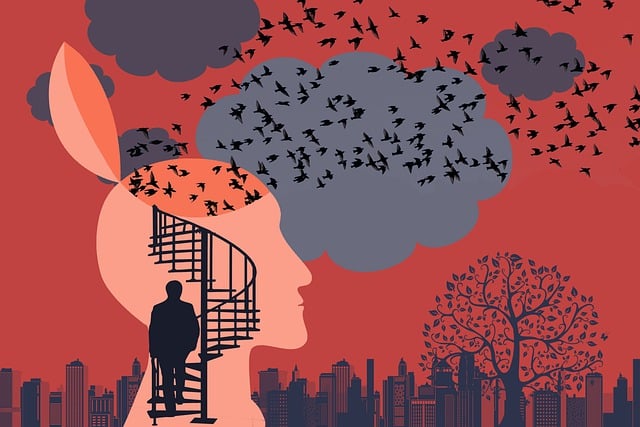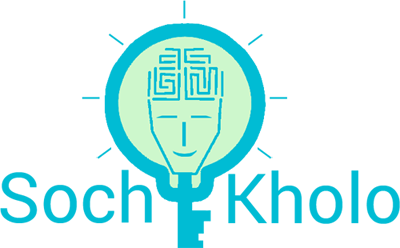All of us live in a shared space with other people as we humans are social animals. We can not live in isolation for a long period of time. First of all, there are our family members with whom we live and spend most of our life, and then there is the larger society- neighbors, friends, relatives, colleagues and strangers with whom we interact and deal with on a day to day basis. Hence, it becomes important that we understand others well so that our relationship with them is meaningful and fulfilling. A lot of conflicts and fights take place among people because they are not understanding others.
Do we really understand anyone?
We spend time and share space with other people in different variations. Family and friends are closer than neighbors, distant relatives and co-workers. First encounters with strangers get challenging for us with regards to how we understand them as we meet them for the first time in our life. Now, if we rely on the time aspect as to how long we have known someone and on the information aspect as to how much we know about them already then we will say that “we know and understand our family members and friends better than our neighbors, distant relatives and co-workers.” and we will definitely say that “we know and understand our neighbors, distant relatives and co-workers better than to a stranger”. But are we sure of this? Do we really understand others? Let’s try to examine deeper.
Primary challenge in understanding others
Normally, people observe the behavior of a person and label them. They make perceptions based on the kind of behavior one shows generally and label them as intelligent or dumb, calm or angry, soft spoken or rough, kind or cruel, serious or funny etc. The mind does this very quickly as it wants to judge and categorize everything and everyone for the ease of understanding. Then on the basis of the labeling, a certain kind of treatment automatically comes out towards the person due to a particular kind of social and cultural conditioning. For example, if beggars are entertained in a socio-cultural environment, then people give them something easily without thinking, such can be observed near a temple or religious places. When a person is pre-judged and treated out of conditioning, there is little chance that there could be any kind of real understanding. This is also the reason why people hide their real side in public and choose to live a superficial life.

Mechanism for developing understanding
We think and assume that understanding others requires careful and sensitive inquiry about what is in their mind and what emotions are present in their hearts. We pay attention to their expressions, words, feelings, body language and the overall experience of the interaction gets communicated and interpreted to us by our mind to make the best possible meaning as per our own understanding that we have on diverse issues. One will agree that there could be a possibility that one’s understanding about these diverse issues that are being discussed and interpreted have limits. And even if the person who is listening is an expert of all the diverse fields (which is least possible), words have their own limits and cannot help you understand things beyond a point. They only communicate ideas, thoughts, intentions, emotions and feelings. If this material that is communicated in the form of thoughts, intentions, emotions and feelings comes from a place of attachment and is further interpreted by the other person who is also operating from a place of attachment it will lead to no actual understanding and can potentially even cause misunderstandings. This attachment to the personal point of view limits us to a great extent in our very endeavor to understand others. There is only one thing that is needed to understand others and that is sheer observation with absolute awareness which is absent in most people.
What is this sheer observation with absolute awareness? or which is also often called presence. There is a way of observing where one is not attached with one’s point of view and is therefore open to alternate possibilities. All of us have a mind which carries certain concepts, phenomenons, ideologies, worldviews, theories and philosophies that helps us to make our own point of view so that we can come closer to the received communicated material from others in our pursuit to understand them. If one has any attachment to one’s own point of view then at the time of any deviation from this personal view, a challenge will arise in accepting and comprehending this new point of view which will prevent any new learning or further understanding. In such a situation, you don’t want to get into conflicts and arguments if the other person is unable to comprehend it and has a different view on the same issue.
Hence, not being attached with your own point of view is the key over here. That can happen only when we learn to drop the perceptions that are dear to us and really listen to what the other person is saying. If we can do that with awareness, new learning takes place immediately. It is only then that there is a possibility of understanding what the other person really means. Most of the time, people do not want to let go of their own point of view which they have acquired over a long period of time. This is the main reason why children can learn and understand new things much faster than an old learned man. This old learned man has fixed his point of view over a period of time and does not want to challenge or change it. In contrast, children either do not have any point of view yet as they are still learning, or their point of view is not as fixed which helps them to let go and open up to learn and understand new things easily. Here we see that there is an inverse relationship between attachment to point of view and ability to understand- The higher the attachment to a point of view, the lower the ability to understand and vice-versa.

Knowing the self and understanding others
As we explore further, we will be able to see that the even deeper truth is that we understand others only to the level and limit that we understand our own selves. If we do not know and understand ourselves at all, we can not know and understand others. What we think to be our understanding about others in us is nothing but a web of dead thoughts which include labels, beliefs, judgements and expectations we have accumulated over a period of time about them. Such thoughts are dead because they have no life at all as the person would have undergone numerous changes over time in life whereas we continue to treat the person based on the same labels our mind once gave and based on the same beliefs we once formed. Hence it becomes crucial that we let go of these labels, beliefs, judgements and expectations. And we can do so only when we let go of these for ourselves first. We need to let go of these dead thoughts that cover our true self to know who we are. If we do not know and understand who we are, then we cannot know and understand our life partner, friends, relatives and others just as we find it difficult to understand a stranger. However, if we know and understand ourselves, then we can know and understand others, even strangers in the very first encounter as we become aware of our thought and belief patterns and are able to see beyond them to the whole reality of the present. People spend years in a relationship or marriage but there is no guarantee that they really know and understand each other and that is why there are conflicts and fights. This can be seen in almost every family that even after living with the family members for years, they have been living amidst constant conflicts and fights. And unfortunately, most of us do not really know ourselves or are in the process of knowing.
By Kamal Naresh



